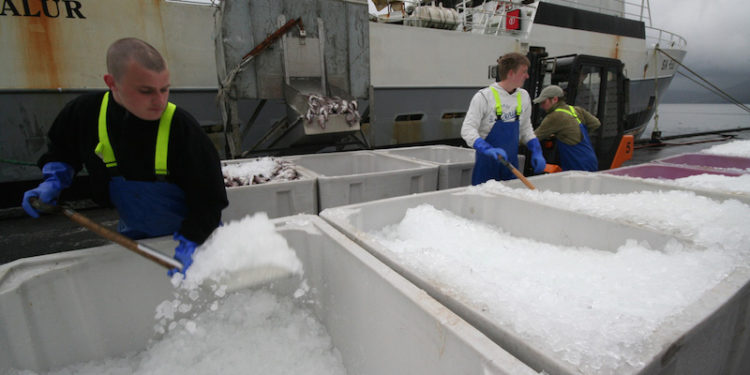The Government has presented a bill to parliament which substantially seeks to reform fisheries policies and the administration of the country’s most vital resource. According to the government, this reform sets out to promote sustainability and change the way in which fishing licenses are administered. On the other hand, the industry remains uneasy and unconvinced.
The proposal sets out that marine resources are property of the people of the Faroe Islands and may therefore neither in law nor practice become private property of anyone in the fishing industry. The Government proposes that anyone who seeks to participate in Faroese fisheries must be registered and pay taxes in the Faroe Islands and all crews must be paid in accordance with Faroese collective agreements.
The reform is expected to pass through parliament in July.
‘The natural resources in the ocean are of utmost importance for the livelihood of the Faroese people. The main aim of the fisheries reform is thus to ensure a sensible and sustainable exploitation as well as to increase the value of the Faroe Islands’ marine resources, commented fisheries minister, Høgni Hoydal.
While many aspects of the reform proposals are not even remotely contentious, the industry is nervous about the move for 25% or quotas for 2018 to be sold at auction as short- and long-term licences. The 2018 quota allocations are set to be the benchmark for the future and quotas in excess of the 2018 level in future years will also be auctioned.
A resource fee will also be applied for quotas that are not subject to the auction process. Provision is also included to remove foreign ownership in the Faroese fishing industry by 2020.
‘Not just the Government, but the entire political system is facing a great responsibility to discuss and pass the new policy,’Høgni Hoydal said.
The present reform dates back to 2008 when the Faroese Parliament moved to terminate the present licensing system with ten years’ warning, with a new regime to be put in place by 1st January 2018. Developing it has been a long and not an easy process, which some industry figures feel was allowed to lie dormant for too long before being unduly rushed.
Prior to that, Faroese EEZ limits were extended to 200 nautical miles in 1977, at around the same time that Iceland, Norway and EU nations were also imposing similar fishery limits. The present management regime with its heavy emphasis in days at sea management came into being in the early 1990s following a brief and unhappy flirtation with an ITQ system that was hurriedly abandoned as unworkable.









